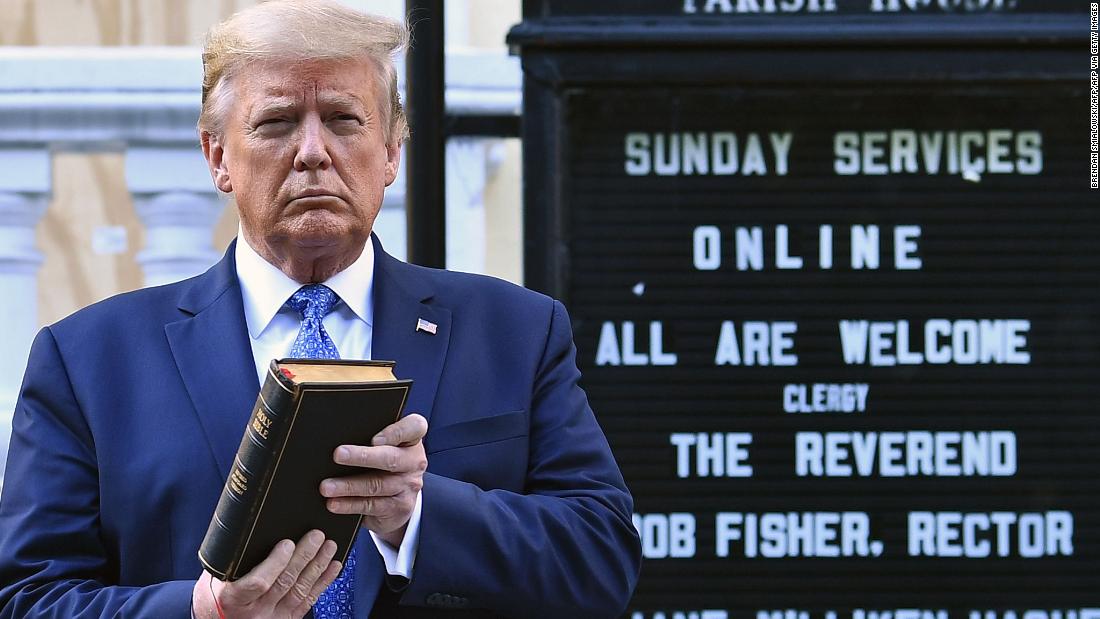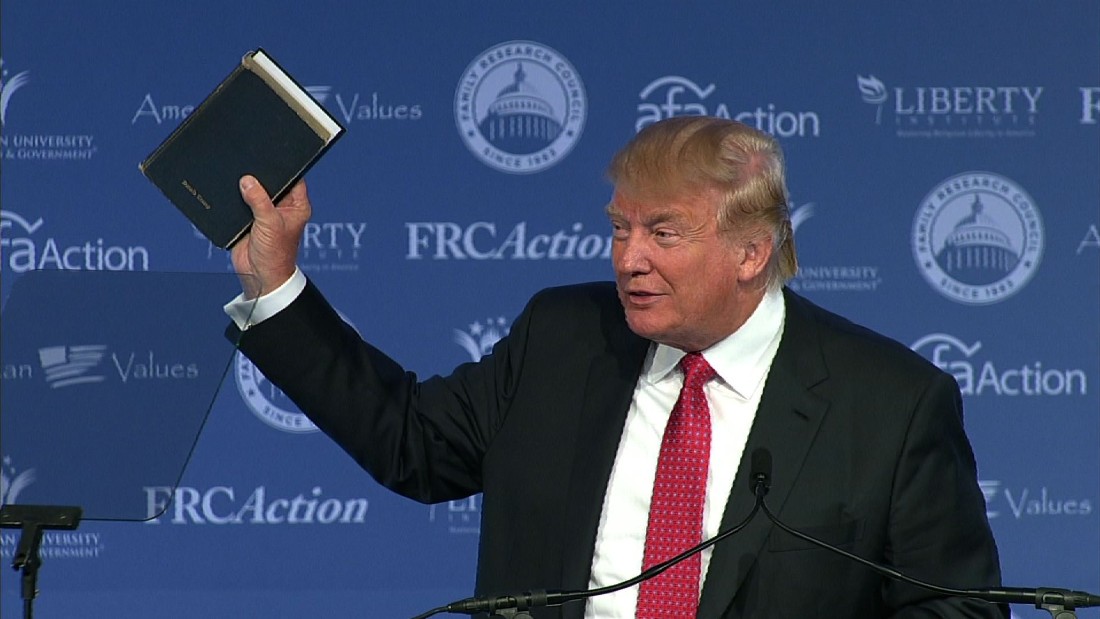So here's the deal, folks. **Why did Trump not put his hand in the Bible?** It's a question that’s been swirling around the internet like a tornado of curiosity. Picture this: a president, a Bible, and a moment that left everyone scratching their heads. Let’s dive into the heart of this mystery because trust me, it’s more than just a hand placement issue. It’s about symbolism, tradition, and the deeper meaning behind it all. Are you ready? Let’s go!
Now, before we get into the nitty-gritty, let’s set the stage. This isn’t just about Trump or the Bible. It’s about how public figures navigate tradition, expectations, and optics. Every gesture, every move, is scrutinized under a microscope, and when something as simple as not putting your hand on a Bible becomes a talking point, you know it’s worth exploring. So buckle up, because this ride is gonna be interesting.
And hey, let’s not forget why this matters. In a world where symbolism carries so much weight, understanding why Trump chose—or didn’t choose—to place his hand on the Bible can reveal a lot about his approach to leadership, tradition, and public perception. Stick around, because we’re about to break it down like nobody’s business.
Read also:Teen Mom Leah The Untold Story Of A Young Mom Striving For Success
Understanding the Tradition of Swearing on the Bible
Alright, let’s rewind for a second. The tradition of swearing on the Bible is as old as, well, the Bible itself. Historically, it’s been a way for leaders to affirm their commitment to truth, justice, and all that jazz. But here’s the thing—this tradition isn’t just about religion. It’s about trust, accountability, and showing the public that you’ve got their backs. For centuries, leaders have used this moment to connect with their audience on a deeper level. So when Trump didn’t follow suit, it raised some eyebrows.
Now, some might argue that traditions are just that—traditions. They’re nice to have, but not necessarily mandatory. And that’s fair. But in the world of politics, where every move is analyzed, breaking from tradition can send a message. Whether that message is intentional or not is a whole other story.
Trump’s Approach to Symbolism and Tradition
Let’s talk about Trump for a sec. The guy’s no stranger to breaking norms. From his fashion choices to his communication style, he’s always been one to march to the beat of his own drum. So it’s no surprise that he would approach the Bible-swearing tradition with his own twist. But what does this say about his leadership style? Is it a calculated move, or just another example of his unconventional approach?
Some experts suggest that Trump’s decision not to place his hand on the Bible was a strategic one. In a world where polarization runs deep, he might have been trying to appeal to a broader audience. By not adhering to traditional norms, he could be signaling that he’s a leader for everyone, not just those who follow specific religious practices. Or, maybe, just maybe, it was a simple oversight. Who knows?
Public Reaction and Media Coverage
When Trump didn’t put his hand on the Bible, the internet exploded. Social media lit up with memes, theories, and opinions from all sides of the spectrum. Some people saw it as a sign of disrespect, while others viewed it as a bold statement of inclusivity. The media, of course, had a field day with the story, turning it into a national conversation about religion, politics, and tradition.
But here’s the thing—public reactions often say more about the audience than the subject. In this case, the debate about Trump’s hand placement reflects deeper divides in society. Are we clinging to tradition for tradition’s sake, or is there real value in these rituals? It’s a question worth pondering.
Read also:Unveiling The Truth Behind Millers Girl Sex Scene A Comprehensive Guide
Exploring the Reasons Behind the Decision
So, why exactly did Trump not put his hand on the Bible? There are a few theories floating around. One possibility is that he simply didn’t want to conform to traditional expectations. As a leader who prides himself on being different, he might have seen this as an opportunity to set himself apart. Another theory is that he wanted to avoid alienating non-religious voters. By not placing his hand on the Bible, he could be signaling that his administration is inclusive of all beliefs.
Of course, there’s also the possibility that it was a genuine oversight. Maybe he just forgot, or maybe he didn’t think it was a big deal. Either way, the decision sparked a conversation that went far beyond the act itself.
Did Trump Intentionally Break Tradition?
This is where things get juicy. Was Trump’s decision to skip the Bible-hand tradition a deliberate move? Some experts believe it was. They argue that Trump is a master of optics and knows exactly how to play the media game. By not following tradition, he could have been trying to create a narrative of his own—a narrative that challenges the status quo and resonates with his base.
Others, however, aren’t so sure. They point out that Trump has a history of making spontaneous decisions without much thought. Could this have been one of those moments? It’s possible, but without hearing it straight from the horse’s mouth, we’ll never really know.
The Role of Religion in Politics
Let’s take a step back and look at the bigger picture. Religion has always played a significant role in politics, and the Bible-swearing tradition is just one example of that. For many, it’s a way to connect with their leaders on a spiritual level. But in today’s increasingly secular world, does this tradition still hold the same weight?
Some argue that it does. They believe that religion provides a moral foundation for leadership and helps guide decision-making. Others, however, think it’s time to move away from religious rituals in politics. They argue that a leader’s actions, not their religious practices, should be the focus of public scrutiny.
Historical Context and Precedents
Before we jump to conclusions, it’s important to look at the historical context. Have other presidents skipped the Bible-hand tradition? The answer is yes. In fact, several presidents have opted not to place their hands on the Bible during their swearing-in ceremonies. Some even chose to use other sacred texts, like the Quran or the Torah. So while Trump’s decision might seem unusual, it’s not entirely unprecedented.
What sets Trump apart, however, is the timing and the context. In a politically charged environment, even the smallest gestures can carry enormous weight. And in this case, his decision not to place his hand on the Bible became a lightning rod for debate.
Public Perception and Legacy
So, what does all of this mean for Trump’s legacy? Will history remember him as a trailblazer who challenged tradition, or as a leader who disregarded important rituals? The answer likely lies somewhere in the middle. Public perception is a tricky thing, and it’s shaped by a multitude of factors. While some might view his decision as a bold move, others might see it as a sign of disrespect.
Ultimately, Trump’s legacy will be defined by more than just his approach to tradition. It will be shaped by his policies, his leadership style, and the impact he had on the world. But for now, this moment serves as a reminder of how even the smallest gestures can spark big conversations.
What Does This Say About Leadership Today?
As we reflect on Trump’s decision not to place his hand on the Bible, it’s worth asking what this says about leadership today. In a world where tradition and modernity collide, leaders are faced with the challenge of balancing the old with the new. Should they adhere to time-honored rituals, or should they forge their own paths? There’s no easy answer, but one thing is clear—leadership is evolving, and so are the expectations placed upon those who hold the reins of power.
Conclusion: What We’ve Learned
So there you have it, folks. We’ve explored the reasons behind Trump’s decision not to place his hand on the Bible, the public reaction, and the broader implications of this moment. While we may never know the exact reason behind his choice, one thing is certain—this incident highlights the importance of symbolism in politics. Whether you see it as a sign of progress or a break from tradition, it’s undeniable that this moment sparked a conversation that extended far beyond the act itself.
Now, here’s the thing—I want to hear from you. What do you think about Trump’s decision? Do you believe it was a calculated move, or just an oversight? Leave your thoughts in the comments below, and while you’re at it, don’t forget to share this article with your friends. Who knows? Maybe we can keep the conversation going!
Table of Contents
- Why Did Trump Not Put His Hand in the Bible? Unpacking the Controversy
- Understanding the Tradition of Swearing on the Bible
- Trump’s Approach to Symbolism and Tradition
- Public Reaction and Media Coverage
- Exploring the Reasons Behind the Decision
- Did Trump Intentionally Break Tradition?
- The Role of Religion in Politics
- Historical Context and Precedents
- Public Perception and Legacy
- What Does This Say About Leadership Today?
- Conclusion: What We’ve Learned


